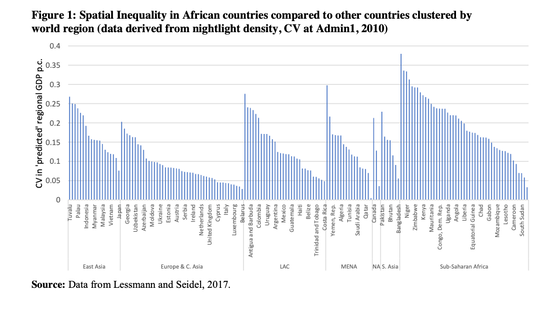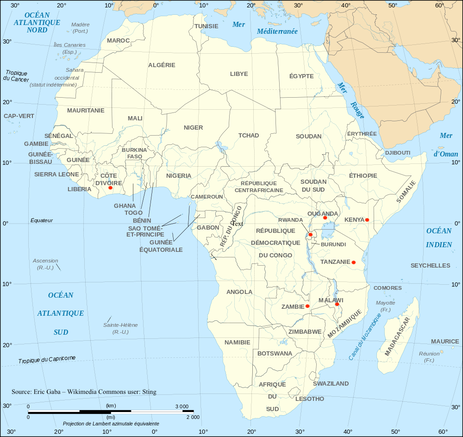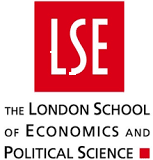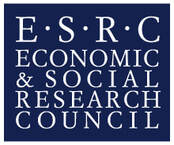How do inequalities across subnational regions within African countries shape patterns of conflict, competition, and political mobilization? Is ethnic identity the only driver of political competition and division in African societies, as much journalistic work, and even much work in political science, would suggest?
 Figure by R. Simson
Figure by R. Simson Catherine Boone and Rebecca Simson. "Regional Inequalities in African Political Economy: Theory, Conceptualization and Measurement, and Political Effects," LSE Dept. of International Development Working Paper, March 2019.
So far, these questions have been difficult to answer because scholars have lacked the kind of subnational, micro-level, and local institutional data that is needed to test hypotheses about the connection between regional and local socio-economic inequalities, on the one hand, and local, regional, and national patterns of political competition, on the other hand. The objective of this project is to respond to these questions with new theory and data that will show that there are economic, socio-economic and institutional drivers of regionalized competition that have often been systematically overlooked in policy and social-scientific understandings of political competition and conflict in Africa.
Empirical studies of African political economy have been stuck at two extremes of the analytic spectrum -- either they take a highly macroscopic and aggregated view of whole countries, or they take a microscopic view of disaggregated households or even individuals. Lack of systematic empirical data at other levels of aggregation has worked to trap empirical researchers at these two extremes, and it has starved more historically, sociologically, and institutionally oriented scholars of the data needed to empirically test and refine theories that seek to identify the drivers of competition and coalition-building in national politics.
Empirical studies of African political economy have been stuck at two extremes of the analytic spectrum -- either they take a highly macroscopic and aggregated view of whole countries, or they take a microscopic view of disaggregated households or even individuals. Lack of systematic empirical data at other levels of aggregation has worked to trap empirical researchers at these two extremes, and it has starved more historically, sociologically, and institutionally oriented scholars of the data needed to empirically test and refine theories that seek to identify the drivers of competition and coalition-building in national politics.
 Core Research Sites
Core Research Sites
This project develops new theory, data, and innovative empirical strategies at the subnational level, focusing on natural regions, provinces, administrative regions, electoral constituencies, and zones defined by land tenure regimes. This is the level of analysis most appropriate for understanding patterns of cleavage and competition that drive electoral struggles, development policy disputes, and civil conflict within African countries. Here as in much of the developed and developing world, urban-rural tensions, core-periphery tensions, competition between rich and poor provinces, and political tensions between wealth-generating regions and stagnant, enclaved regions are drivers of national-level political and policy struggles. Our project aims to produce a series of scholarly publications that will open new frontiers in understanding the political economy of competition and conflict in African countries.
The interdisciplinary research team is uniquely positioned to combine new data and analytic techniques with deep substantive expertise in the political economy of regional and territorial dynamics in African countries. We aim to break new ground in the study of African politics by using spatial data to reveal the dynamic regionalism, uneven economic development, and territorial inequalities that drive political coalition-building, group mobilization, and partisan and factional rivalries over fundamental policy choices. There is no equivalent or precedent for this kind of work in the fields of social science that we represent: political science, geography, economic history, and development studies. We believe that our research will chart-out new research agendas for the study of African spatial inequalities across these disciplines.
The interdisciplinary research team is uniquely positioned to combine new data and analytic techniques with deep substantive expertise in the political economy of regional and territorial dynamics in African countries. We aim to break new ground in the study of African politics by using spatial data to reveal the dynamic regionalism, uneven economic development, and territorial inequalities that drive political coalition-building, group mobilization, and partisan and factional rivalries over fundamental policy choices. There is no equivalent or precedent for this kind of work in the fields of social science that we represent: political science, geography, economic history, and development studies. We believe that our research will chart-out new research agendas for the study of African spatial inequalities across these disciplines.

